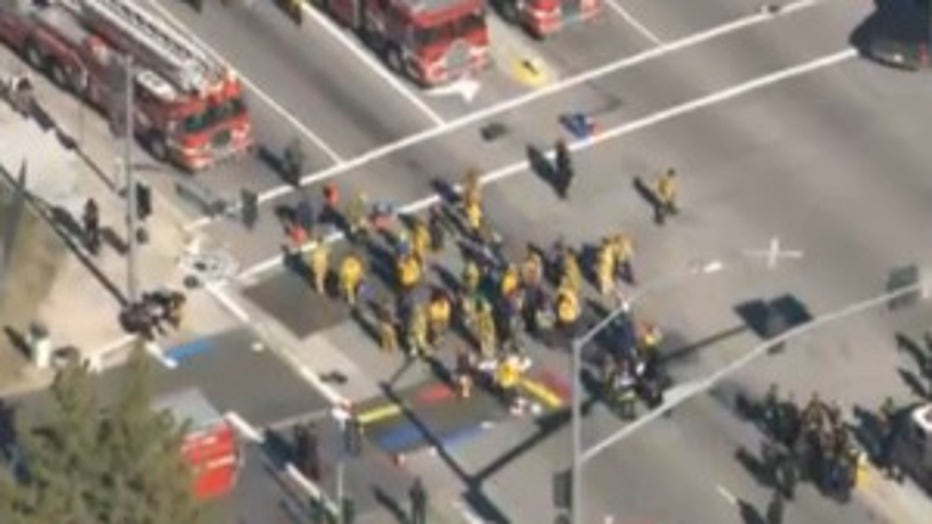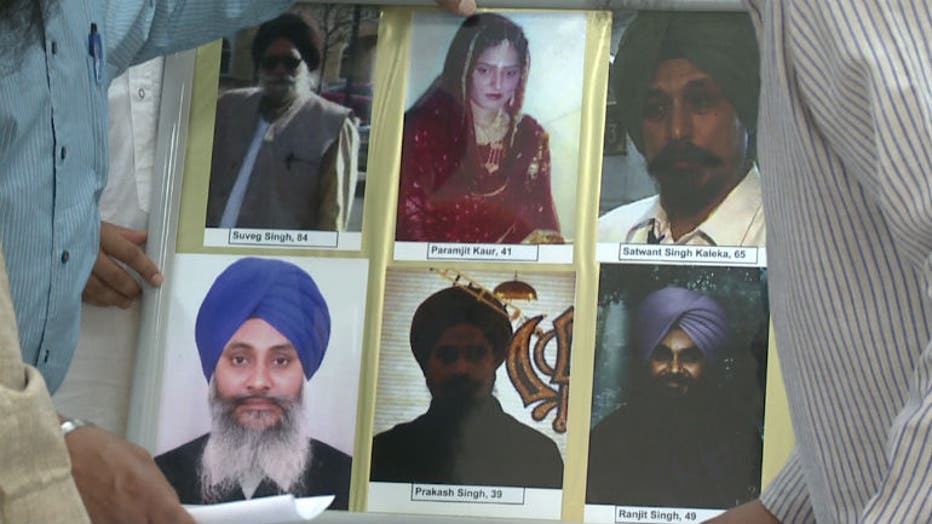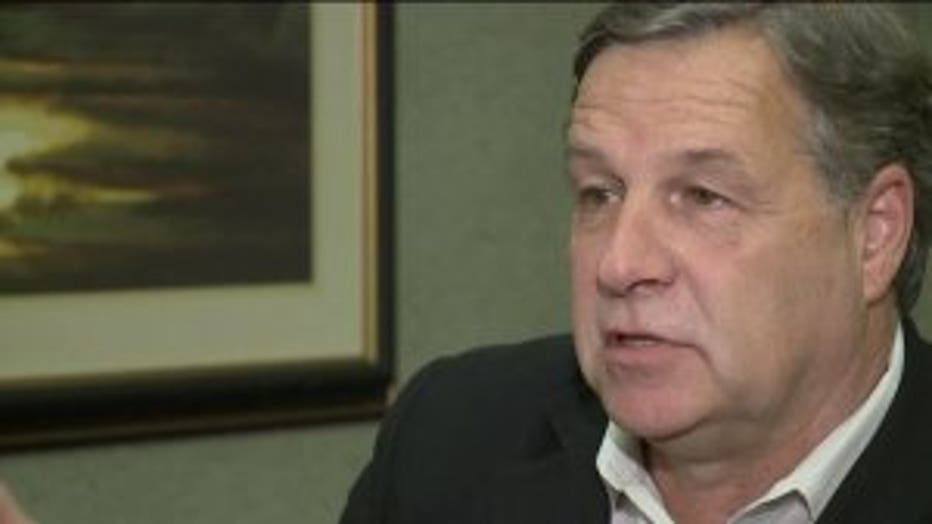"I've had enough:" Oak Creek Mayor Steve Scaffidi pens editorial following mass shooting in California
SAN BERNARDINO/OAK CREEK -- At least 14 people were killed in a mass shooting incident in San Bernardino, California on Wednesday, December 2nd. As of Wednesday night, officials said two suspects had been killed, and a third person had been detained.

Active shooter incident in San Bernardino, California
Oak Creek Mayor Steve Scaffidi, who had to deal with a mass shooting incident in his community in August of 2012, penned an editorial following this latest incident.
On August 5th, 2012 in Oak Creek, a massacre took place at the Sikh temple in Oak Creek -- where 40-year-old Wade Michael Page fatally shot six people and wounded four others.

Sikh Temple of Wisconsin shooting victims

Oak Creek Mayor Steve Scaffidi
Page committed suicide by shooting himself in the head after he was shot in the stomach by a responding police officer.
Below is Mayor Scaffidi's editorial:
"I've had enough.
Wednesday afternoon I was greeted by the news from San Bernardino, Calif., that at least 14 people were killed in another mass shooting incident, this time at a public facility.
I'm tormented by the stark realization that as a nation that prides itself as the voice of justice and compassion to the rest of the world, we can't go through a week's news cycle without hearing about another mass shooting and innocent people losing their lives, often in the most violent and brutal manner.
As a mayor who dealt with this issue firsthand at the Sikh Temple of Wisconsin shooting on Aug. 5, 2012, I'm weary of getting calls from news media asking me to comment on the most current mass shooting incident, especially when they ask me the question: What can we do about it? Controlling individual behavior is difficult, if not impossible, and trying to guess — in advance — what might motivate someone to commit an act of hate and violence will always be a challenge.
But in sharing this collective national shock whenever this happens, I would argue that we're witnessing a fundamental and profound failure of our duty to protect our citizens from violence in any way possible, and we've turned over the debate to politicians, bloggers and lobbyists, all who hide behind tired clichés and fundamentally dishonest reasons why we can't do anything about it.
The U.S. Constitution is a powerful and wise document, but with the rights it endows come responsibility, and I would argue that in the case of gun ownership, which is a right guaranteed by the Second Amendment, we've let that right define the culture and environment in which we live to a degree that it has taken over our consciousness and made our citizens feel less safe.
As an elected official, I feel the burden of the question every time a mass shooting takes place. What should I be doing? What can I do to lessen the likelihood that it will happen again? Why don't we as a country take actions to reduce violence?
The answer, of course, is we could, but we don't. We use silly arguments and fall back into entrenched, absolutist positions that may make us feel better as part of a defense of our own personal agendas or political tastes. We bury our head in nonstop television coverage that progresses from eyewitness accounts, to hastily-arranged news conferences to medical trauma centers, but stops short of moving forward on any legislation, policy or social changes that could actually make a difference.
I am a gun owner. But I have to believe that one of the popular responses to mass shootings — arm everyone and encourage individual and aggressive action against a mass shooter — is at best naive, and at worst, dangerous. Law enforcement professionals are highly trained and understand through direct experience that carrying a gun is a powerful responsibility and doesn't guarantee that a shooter will be stopped.
The shooting at the Sikh Temple was a clear example of that, with one of our most experienced officers coming within an inch of losing his life. Expecting citizens to prevent or slow down perpetrators of violence seems logical, and in some cases might actually be possible, but it could result in the gun owner losing his or her life when mistaken for the shooter. As a country, we've lived through the "wild west" mentality of frontier justice. It didn't work. It only made the weakest members of our society less safe.
And it won't work now.
What can we do?
Why not start with researching and funding programs that have been proven to reduce violence? We live in a country of tremendous resources and brilliant minds who tackle difficult and complex problems every day. Why would we not care as much about this epidemic of violence as we do about all the other ways people die every day?
Steve"

